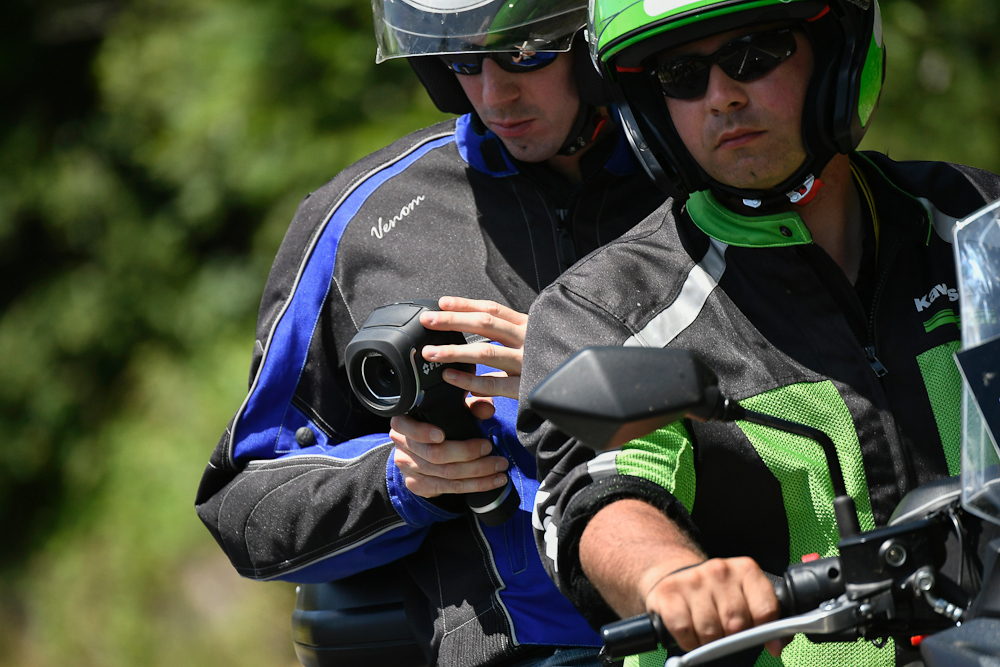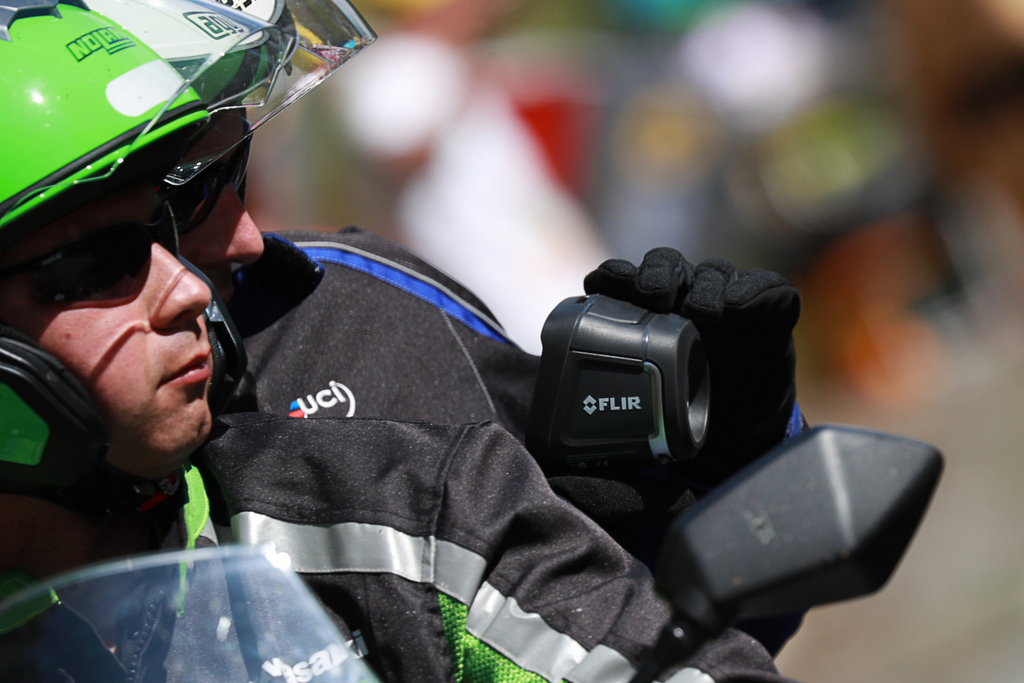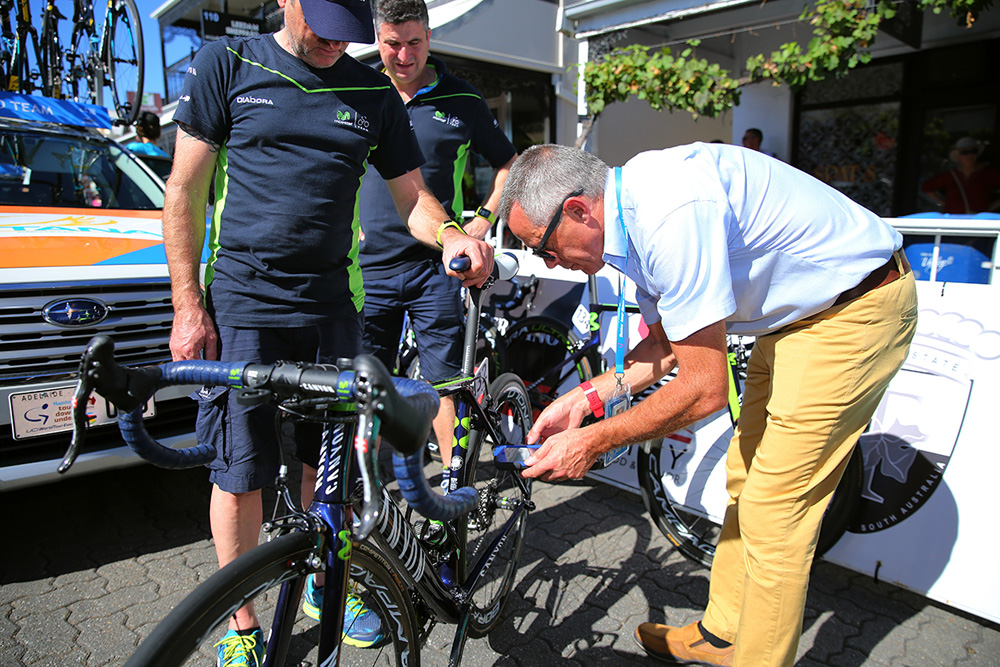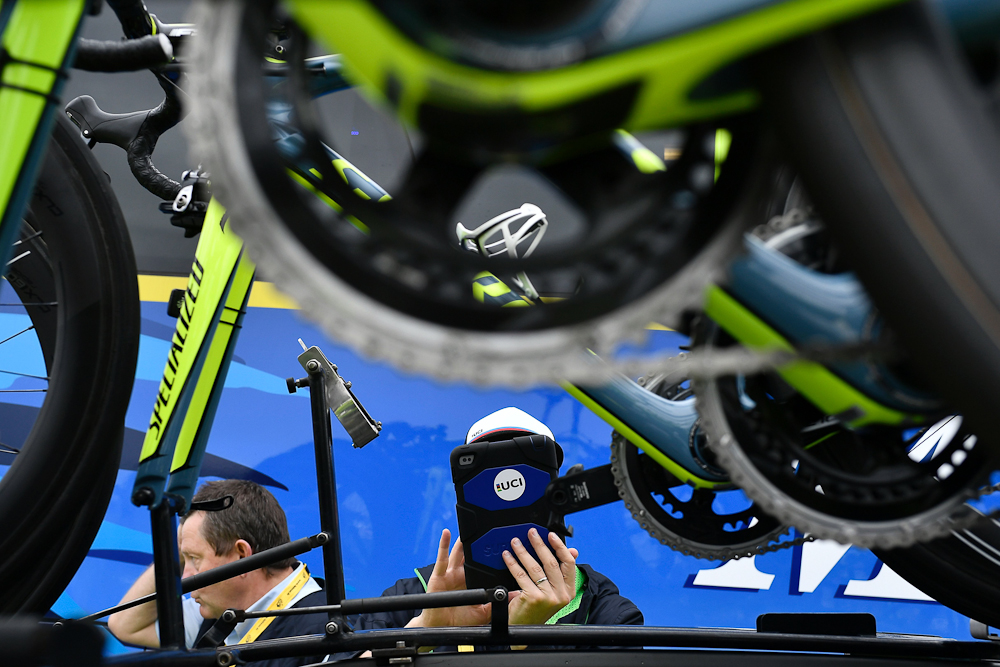Tour de France to continue thermal imaging checks for mechanical doping
French government and ASO continue partnership





A partnership between the French government and the Tour de France organisers has been extended to continue the use of thermal imaging cameras developed by the country's Atomic Energy Commission (French Commissariat à l'Energie Atomique, CEA) in 2017 to detect possible mechanical doping, according to L'Equipe.
The cameras, which are portable and can be used from the road side or in the Tour de France convoy, can detect heat signatures emanating from motors hidden inside wheels or frames. They were first used last season in conjunction with the UCI's existing magnetic resonance screening for motors, which is carried out using tablets at stage starts and finishes.
Since a motor was found in a pit bike belonging to Belgian U23 cyclo-cross racer Femke Van Den Driessche at last year's world championships, there has been increasing speculation that the fraudulent bikes have also been used in professional road races.
Inventor Istvan Varjas has promised that a soon-to-be-aired television investigative report will provide 'major revelations'.
The Secretary of State for Sports, Thierry Braillard, announced the renewal of its agreement with the Tour de France organisers ASO late last week.
According to L'Equipe, during the same parliamentary session, there were two amendments put forth to criminalize mechanical doping, but these were rejected.
The latest race content, interviews, features, reviews and expert buying guides, direct to your inbox!
